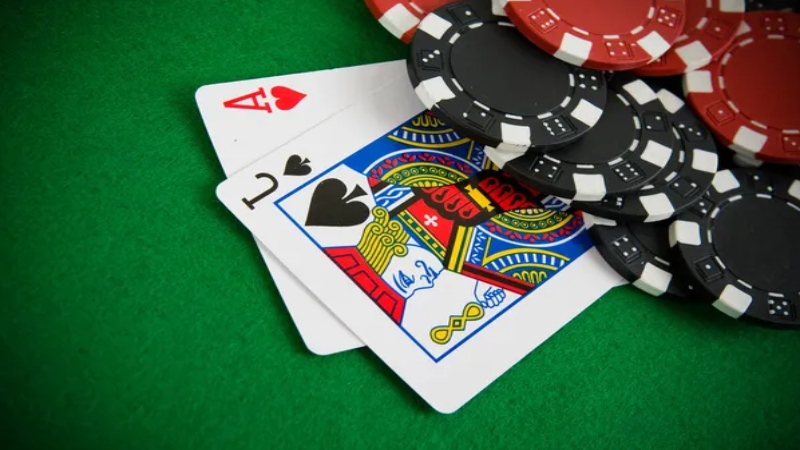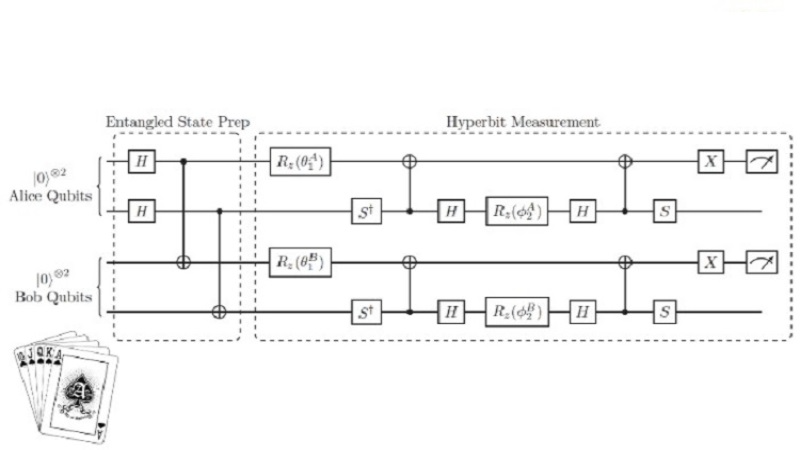Introduction
In the realm of blackjack, even with optimal play using Blackjack Strategy, the dealer maintains a 0.6% advantage. This translates to an average loss of $6 for every $1000 wagered. This article explores innovative strategies aimed at overcoming this house edge, leveraging both historical tactics and cutting-edge techno
OKbet Online Casino offers variety Game betting options and bonus.

Collaborative Card Counting: A Historical Perspective
During the late 1970s, students from MIT, Caltech, and Harvard pioneered collaborative card counting. By discreetly tracking cards and using statistical analysis, they gained insights into deck composition, enabling informed decisions on hitting or standing. Despite its effectiveness, casinos swiftly responded with countermeasures and blacklisting, inspiring the movie “Bringing Down the House.”
Quantum Entanglement Solution in Blackjack
Recent advancements propose using quantum entanglement to influence blackjack outcomes. Quantum bits (qubits), unlike classical bits, can exist in superpositions and be entangled. This property allows for sophisticated decision-making processes with minimal information. For instance, a single qubit can probabilistically determine whether to “hit” or “stand,” potentially tilting the odds in favor of the player.
Even when players cannot directly transmit information, students from MIT and Caltech proposed a method that utilizes the properties of quantum entanglement. By leveraging the entanglement of quantum bits (qubits), even with only one qubit of information (to decide whether to “hit” or “stand”), it is possible to overcome the dealer’s advantage.

Quantum bits differ from classical bits in that they can exist in a superposition of states, such as 0 and 1, and multiple quantum bits can be entangled, meaning that the measurement of one qubit affects the state of another. An example of a quantum bit in a superposition state is as follows:

In this example, we observe that the quantum bit is in a superposition state of 0 and 1 until we measure it, at which point the quantum bit collapses probabilistically into either 0 or 1. Another example is a superposition state of two qubits:
Suppose we have a quantum state of two qubits, represented as |ψ〉. When we measure the first qubit, if the result is 0, the second qubit automatically becomes 0 at that moment. If the result is 1, the second qubit automatically becomes 1.
OKbet Online Casino offers variety Game betting options and bonus.
How to Reduce the House Edge in Blackjack
Blackjack follows a strategic framework where players decide whether to “hit” or “stand” based on their initial cards and subsequent actions. The goal is to achieve a total closer to 21 than the dealer without exceeding it. This strategic gameplay forms the basis for implementing advanced tactics like quantum-based decision-making.
Implementation and Practicality of Quantum Strategies
In a hypothetical scenario involving two players, quantum bits (qubits) can synchronize decisions based on real-time card analysis. This method, while promising, currently operates optimally only under specific conditions, such as when fewer than eight cards remain in the deck. Practical implementation hinges on advancements in quantum computing capable of real-time calculations.

Conclusion
While quantum strategies offer intriguing possibilities for reducing the house edge in blackjack, their widespread application remains a distant prospect due to current technological limitations. Casinos need not overhaul their security measures immediately, as these strategies require sophisticated quantum computing capabilities. Nonetheless, ongoing advancements in quantum computing hint at a future where such strategies could redefine gaming dynamics, opening doors to new strategic possibilities.
The above is the content compiled by OKbet online casino for everyone
OKbet online casino believe these resources have provided elements to enrich the gaming experience.
May your moments at the gaming table be filled with excitement and success.

